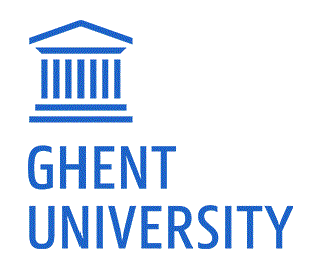Date: 10-12 July 2017
Location: Ghent University, Campus Mercator, Abdisstraat 1, 9000 Gent
Topic: Translation and Interpreting Studies (TIS) are rapidly evolving areas of study. More advanced methodologies are being used for the collection and analysis of data, ranging from corpora to experimental datasets. Young researchers find it sometimes difficult to keep up with these changing methodologies and at the same time remain critical of their use. In addition, within TIS, there is a lack of information exchange between translation study scholars and interpreting study scholars, even though their questions and methodological concerns are often comparable.
The goal of this course is to familiarize PhD students with new process and product methodologies in TIS, for them to reflect on both their application in their own research as well as on the theoretical underpinnings of empirical research in translation and interpreting. The key aspects of the circular flow of scientific learning will run like a thread through the course: from a critical evaluation of the current definitions and state-of-knowledge in TIS to setting up a corpus or experiment with relevant tools, to statistical analysis and interpretation of results.
The course will be a combination of theoretical and hands-on sessions, giving PhD students the chance to apply the course content to their own research problems and to discuss their questions and pending issues they encounter in their own research with the lecturers.
As the course will take place right before the Translation and Interpreting in Transition Conference, students participating in the course will have a unique chance to see how the course methodologies are being applied in current translation and interpreting research.
Preliminary programme:
Day 1: Introductions and reflection on key concepts
Participants introduce themselves during a poster session. Key concepts in corpus design and experimental design are introduced. The concepts are then discussed in light of the reading list and participantsí own research projects.
Day 2: Tools and practical applications
Participants learn how to create and enrich a (text and/or interpreting) corpus and will learn about the possibilities of keystroke logging using Inputlog. The day consists of tool introduction as well as hands-on sessions where participants can work on actual data and ask questions to the lecturers. Participants get a brief introduction to translation research using an EyeLink eyetracker.
Day 3: Statistical analysis
Participants learn how to perform basic statistical analyses relevant to their research and reflect critically on the relevance of different statistical methods. Later in the day, more advanced statistical research methods are introduced. Participants have time to perform the analyses on their own data and to discuss difficulties with the lecturers.
Lecturers: Haidee Kruger (Macquarie University), Luuk Van Waes and MariŽlle Leijten (Antwerp University); Joke Daems, Ludovic De Cuypere, Bart Defrancq, Gert De Sutter, Lieve Macken and Lore Vandevoorde (Ghent University).
Preparation: participants are asked to bring a poster to the summer school, outlining their work and main research questions. A reading list will be sent to all participants before the start of the course, which they are expected to read as preparation for the discussion sessions.
Costs: To be determined.
Registration: registration will open in April.

